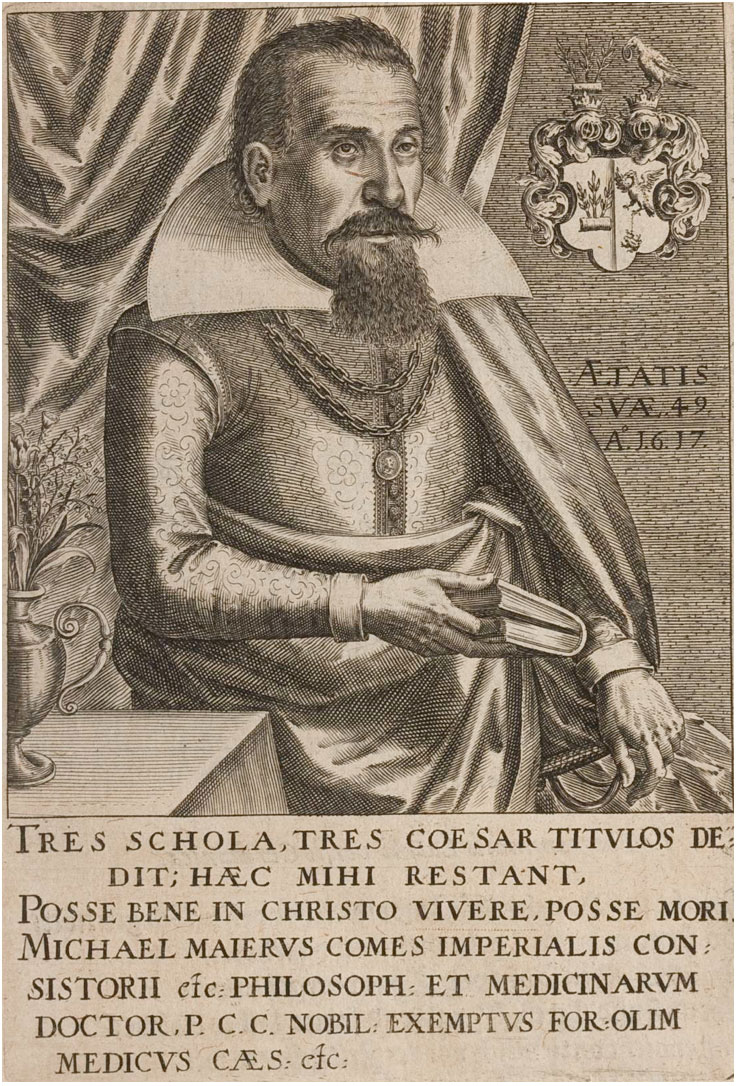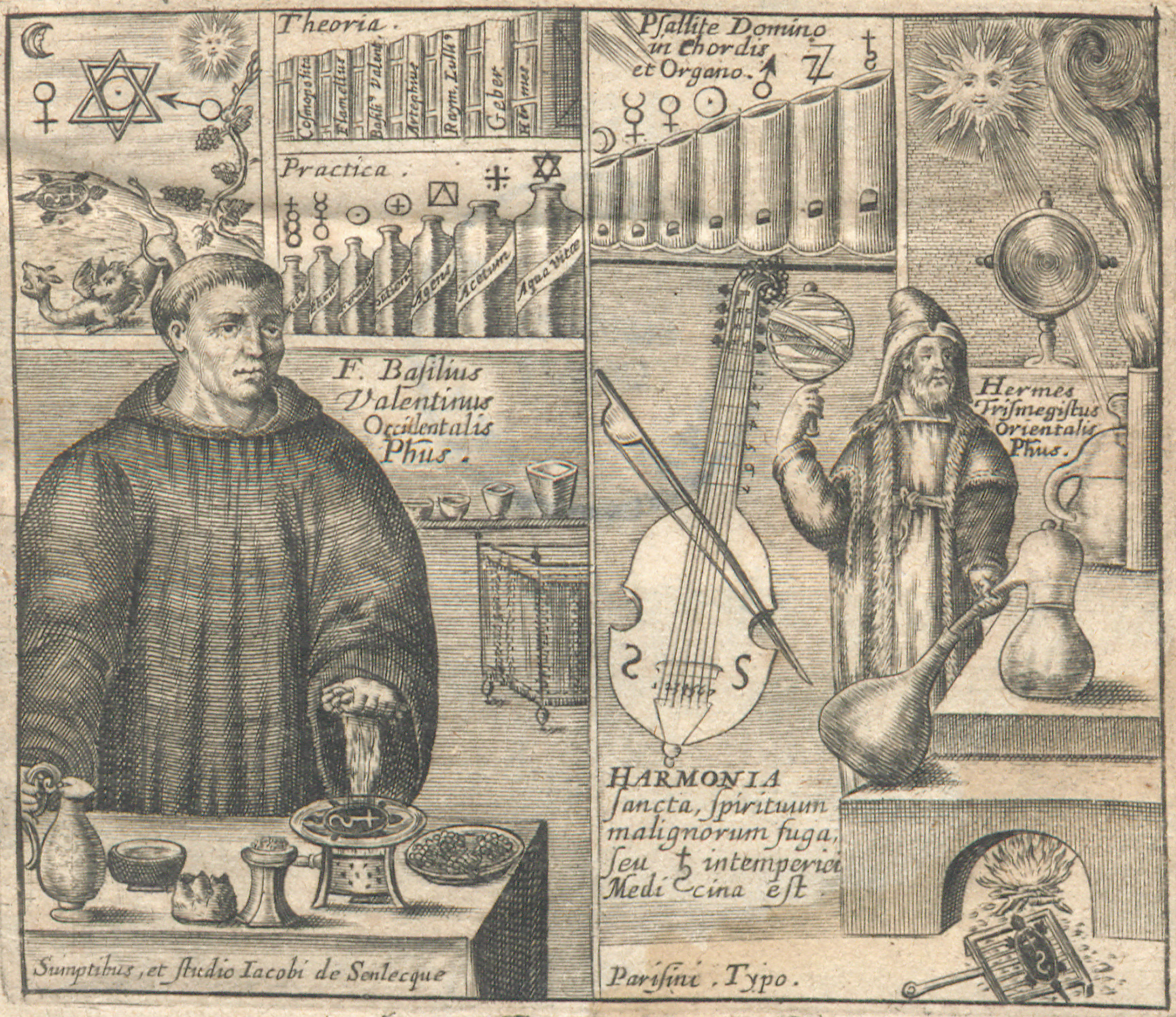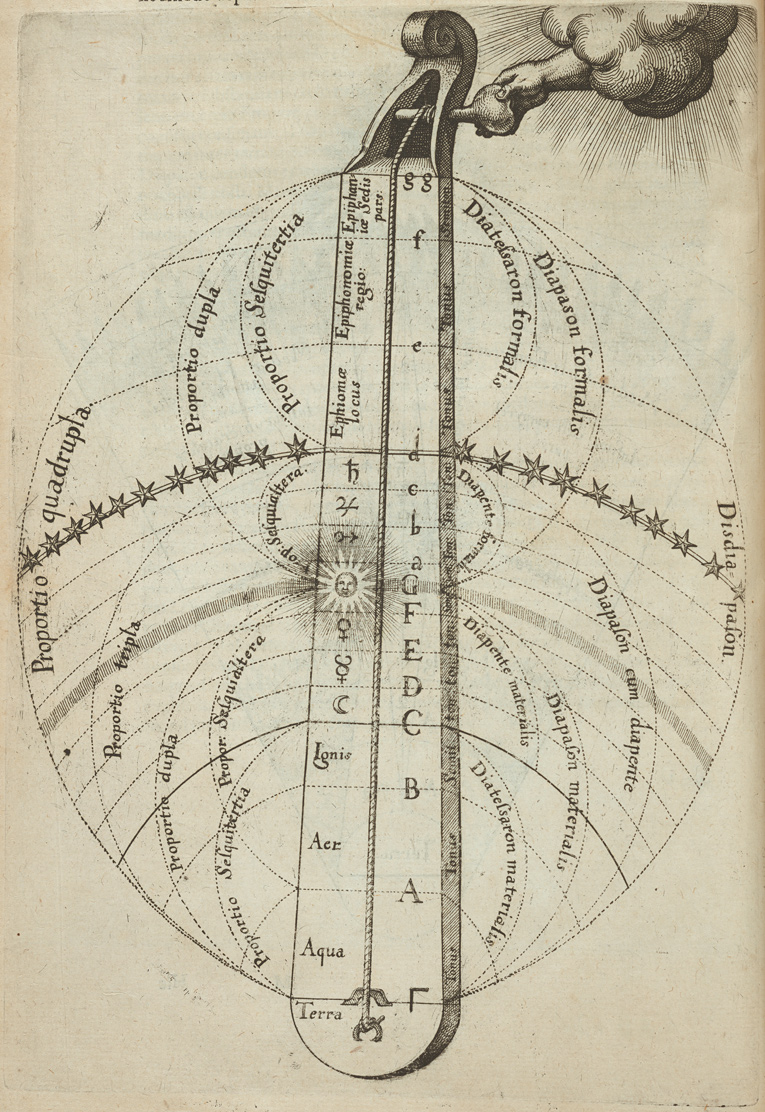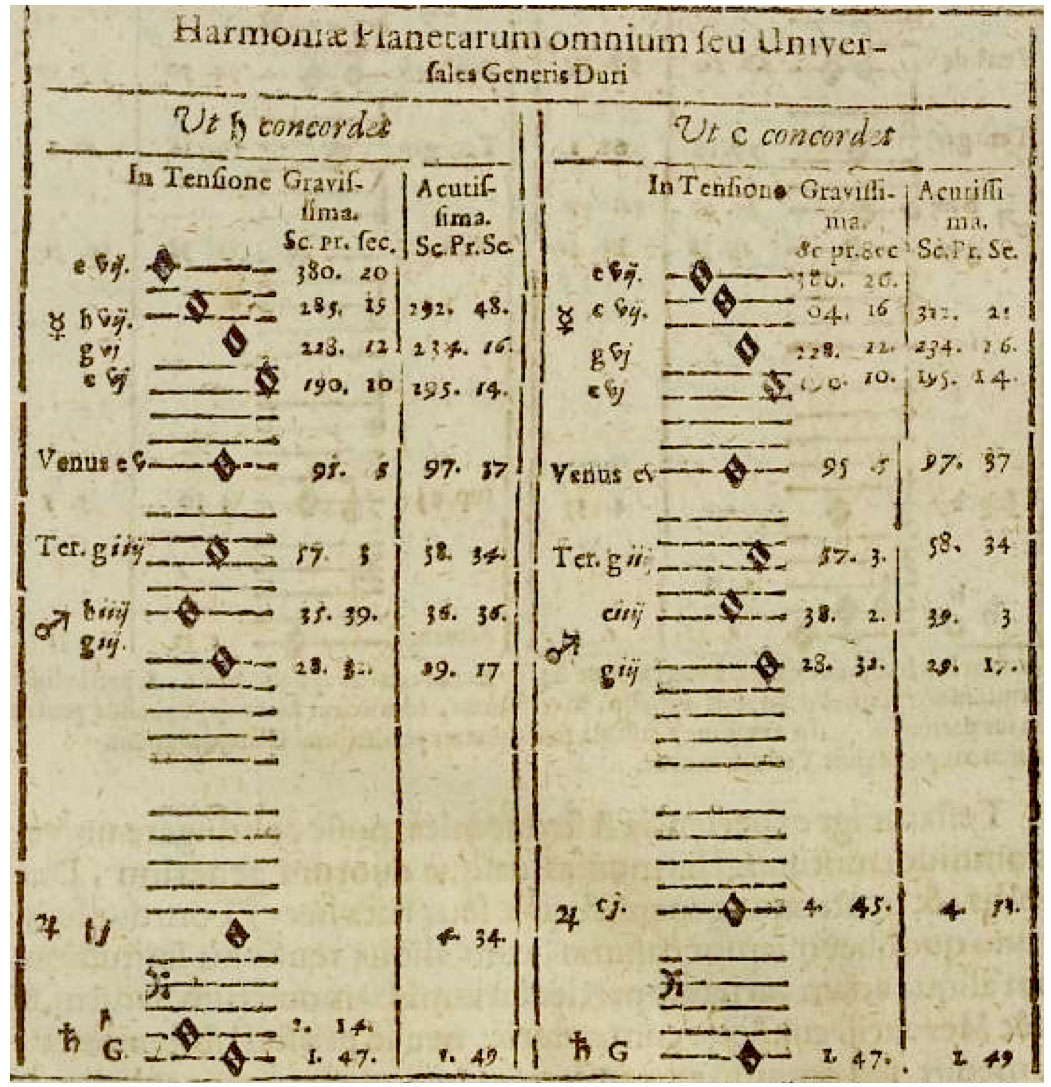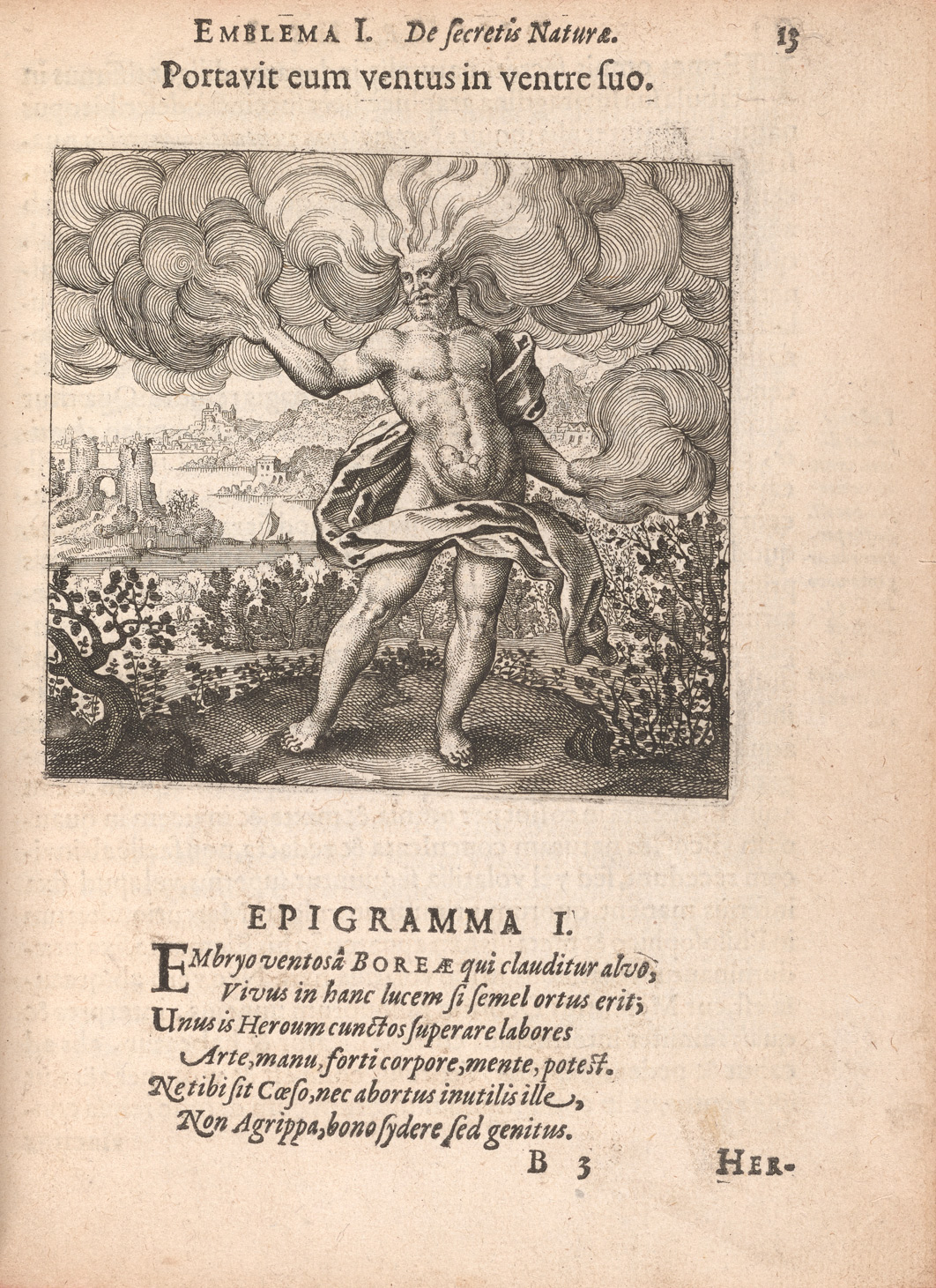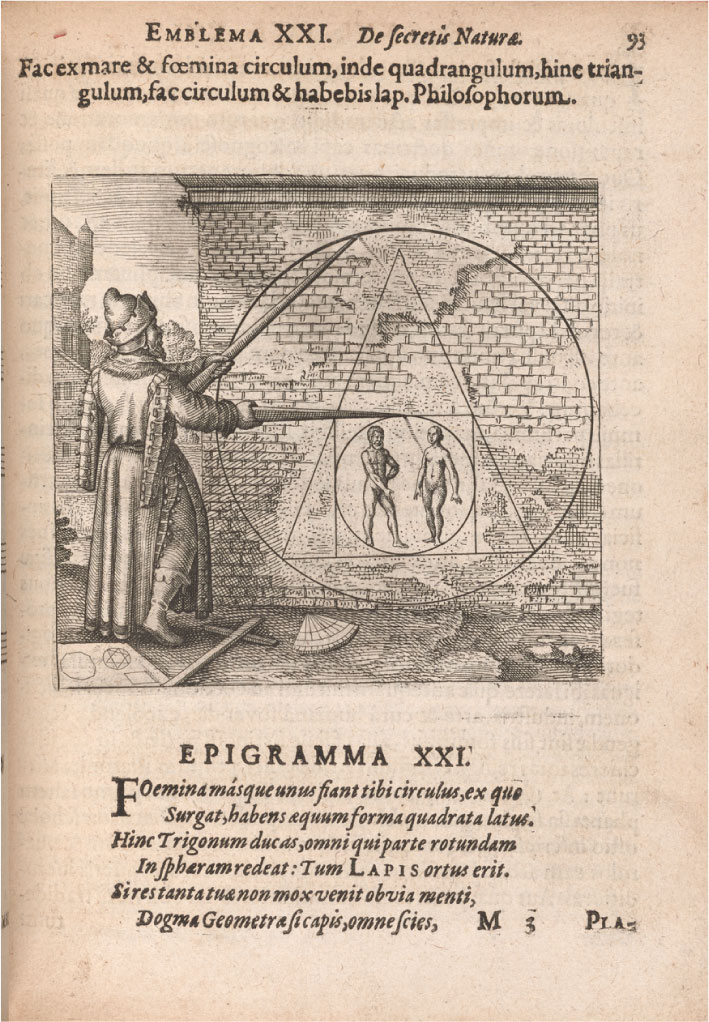Primary Sources
Bathe, William. A Briefe Introduction to the Skill of Song. London, 1596.
Biancani, Giuseppe. “De mathematicarum natura dissertatio.” In Aristotelis loca mathematica. Bologna,
1615.
Sphaera mundi, seu cosmographia demonstrativa. Bologna, 1620.
Brucaeus, Heinrich. Musica theorica. Edited by Joachim Burmeister. Rostock,
1609.
Burmeister, Joachim. Hypomnematum musicae poeticae [. . .]
synopsis. Rostock, 1599.
Introduction to Musica theorica by Heinrich Bruchaeus, edited by
Joachim Burmeister. Rostock, 1609.
Musica [autoschediastikē]. Rostock, 1601.
Byrd, William. Gradualia ac cantiones sacrae [. . .] liber primus.
London, 1610. RISM B 5220.
Calvisius, Seth. Exercitationes musicae. Leipzig, 1600.
Caramuel y Lobkowitz, Juan. Musica, c. 1640–69. RISM I–VIGsa III.2, III.7,
and IV.6.
de Senlecque, Jacques. “L’Imprimeur au lecteur.” In Révélation des mystères des teintures essentieles des
sept métaux
by Basil Valentine [pseud.], translated by I. I. Paris. 1646.
Doni, Giovanni Battista. De praestantia musicae veteris. Florence, 1647.
Farmer, John. Divers & Sundry Waies of Two Parts in One, to the Number of Fortie upon one Playnsong. London, 1591.
Fludd, Robert. Utriusque cosmi [. . .] historia. 2 vols. Oppenheim,
1617–24.
Gassendi, Pierre. Examen philosophiae Roberti Fluddi medici. [Paris, 1630].
In Opera Omnia, vol. 3, 211–68. Lyon, 1658.
Kepler, Johannes. Harmonices mundi libri v. Linz, 1619.
Kircher, Athanasius. Mundus subterraneus. 2 vols. Amsterdam, 1665.
Musurgia universalis, sive ars magna consoni et dissoni. 2 vols.
Rome, 1650.
Oedipus Aegyptiacus. 3 vols. in 4 pts. Rome, 1652–55.
Lassus, Orlando. Modulorum[. . .] secundum volumen. Paris, 1565.
RISM 1565b.
Sacrae cantiones quinque vocum. Nuremberg, 1562. RISM 1562/1570b.
Lippius, Johann. Synopsis novae musicae. Strasbourg, 1612.
Maier, Michael. Arcana arcanissima. [Oppenheim], 1614.
Atalanta Fugiens: An Edition of the Fugues, Emblems, and Epigrams.
Translated and edited by Jocelyn Godwin.
Grand Rapids, MI: Phanes Press, 1989.
Atalanta fugiens: hoc est, emblemata nova de secretis naturae chymica. Oppenheim, 1618.
Cantilenae intellectuales. Rostock, 1622.
Civitas corporis humani. Frankfurt, 1621.
De medicina regia & verè heroica, Coelidonia. [Prague, 1609?].
Examen fucorum pseduo-chymicorum detectorum. Frankfurt, 1617.
Hymnosophia. [Prague, 1609?].
Jocus severus. Frankfurt, 1617.
Lusus serius. Oppenheim, 1616.
Septimana philosophica. Frankfurt, 1620.
Subtilis allegoria. Frankfurt, 1627.
Symbola aureae menae. Frankfurt, 1617.
Verum inventum, hoc est munera Germaniae. Frankfurt, 1619.
Mersenne, Marin. Traité de l’harmonie universelle. Paris, 1627.
Monteverdi, Claudio. The Letters of Claudio Monteverdi. Edited by Denis
Stevens. Rev. ed.
Oxford: Clarendon Press, 1995.
Scherzi musicali [. . .] con la dichiaratione di una Lettera, che si
ritrova stampata nel quinto libro
de suoi madrigali. Venice, 1607. RISM A/I M 3485.
Nucius, Johannes. Musices poeticae. Neisse, 1613.
Norton, Thomas. Crede mihi seu Ordinale. Translated by Michael Maier.
In Tripus aureus, 77–182. Frankfurt, 1618.
Sartorius, Erasmus. Institutionum musicarum tractatio. Hamburg, 1635.
Schoensleder, Wolfgang [Volupius Decorus, pseud.]. Architectonice musices
universalis. Ingolstadt, 1631.
Staricius, Johannes. Newer teutscher weltlicher Lieder. Frankfurt, 1609. RISM
1609.29.
Valentine, Basil [pseud.]. Révélation des mystères des teintures
essentieles des sept métaux,
& de leurs vertus médicinales. Translated by I. I. Paris, 1646.
Secondary Sources
Adolf, Helen. “The Ass and the Harp.” Speculum 25, no. 1 (1950): 49–57.
Aiton, E. J., A. M. Duncan, and J. V. Field. “Introduction.” In The Harmony of
the World by Johannes Kepler,
translated and annotated by E. J. Aiton, A. M. Duncan, and J. V. Field, xi–xxxviii. Philadelphia: The American
Philosophical Society, 1997.
Ammann, Peter J. “The Musical Theory and Philosophy of Robert Fludd.” Journal of
the Warburg and Courtauld
Institutes 30 (1967): 198–227.
Baldwin, Martha. “Alchemy and the Society of Jesus in the Seventeenth Century:
Strange Bedfellows?”
Ambix 40, no. 2 (1993): 41–64.
Bartel, Dietrich. Musica Poetica: Musical-Rhetorical Figures in German Baroque
Music. Lincoln:
University of Nebraska Press, 1997.
Biagioli, Mario. Galileo, Courtier: The Practice of Science in the Culture of
Absolutism. Chicago:
University of Chicago Press, 1993.
Bianchi, Eric. “Scholars, Friends, Plagiarists: The Musician as Author in the
Seventeenth Century.”
Journal of the American Musicological Society 70, no. 1 (2017): 61–128.
Classen, Albert, and Lukas Richter. Lied und Liederbuch in der frühen
Neuzeit. Münster:
Waxmann, 2010.
Dear, Peter. Discipline & Experience: The Mathematical Way in the Scientific
Revolution. Chicago: University
of Chicago Press, 1995.
Mersenne and the Learning of the Schools. Ithaca: Cornell
University Press, 1988.
de Jong, H. M. E. Michael Maier’s “Atalanta Fugiens”: Sources of an Alchemical
Book of Emblems.
Leiden: E. J. Brill, 1969.
Figala, Karin, and Ulrich Neumann. “‘Author cui Nomen Hermes Malavici’: New Light on the Bio-Bibliography
of Michael Maier (1569–1622).”In Alchemy and Chemistry in the 16th and 17th Centuries, edited by Piyo Rattansi and Antonio
Clericuzio, 121–48. Dodrecht: Kluwer Academic Publishers, 1994.
“Michael Maier (1569–1622): New Bio-Bibliographical Material.” In Alchemy Revisited: Proceedings of the
International Conference on the History of Alchemy at the University of Groningen, 17–19 April 1989, edited by Z. R. W. M. von Martels, 34–50. Leiden: E. J. Brill, 1990.
Forshaw, Peter. “Oratorium — Auditorium — Laboratorium: Early Modern Improvisations on
Cabala, Music, and Alchemy.”
Aries 10, no. 2 (2010): 169–95.
Gerbino, Giuseppe. Canoni et enigmi: Pier Francesco Valentini e l’artificio
canonico nella prima metà del Seicento.
Rome: Edizioni Torre d’Orfeo, 1995.
Gibson, Walter S. “Asinus ad lyram: From Boethius to Bruegel and Beyond.”
Simiolus: Netherlands Quarterly
Quarterly for the History of Art 33, no. 1/2 (2007/2008): 33–42.
Goehr, Lydia. The Imaginary Museum of Musical Works: An Essay in the Philosophy
of Music. Oxford:
Oxford University Press, 1992.
Godwin, Joscelyn. Preface to Atalanta fugiens: An Edition of the Fugues, Emblems, and
Epigrams,
by Michael Maier, translated and edited by Joscelyn Godwin. Grand Rapids, MI: Phanes Press, 1989.
Gouk, Penelope. Music, Science, and Natural Magic in Seventeenth-Century
England. New Haven:
Yale University Press, 1999.
Hellyer, Marcus. Catholic Physics: Jesuit Natural Philosophy in Early
Modern Germany. Notre
Dame: University of Notre Dame Press, 2005.
Kassler, Jamie Croy. “Thomas Britton: Musician and Magician?” Musicology
Australis 7, no. 1
(1982): 67–72.
Leach, Elizabeth Eva. Sung Birds: Music, Nature, and Poetry in the Later Middle
Ages. Ithaca:
Cornell University Press, 2007.
Lenke, Nils, Nicholas Roudet, and Hereward Tilton. “Michael Maier — Nine Newly
Discovered Letters.”
Ambix 61, no. 1 (2014): 1–47.
Ludwig, Loren. “‘Waies’ and ‘Meanes’: Plainsong Canons and the Spiritual Significance
of Cantus Firmus Polyphony
in England c. 1600.” Paper presented at the Annual Conference of the Society for Seventeenth-Century Music, San Antonio, TX, 4 April 2014.
McCreless, Patrick. “Music and Rhetoric.” In The Cambridge History of Western
Music Theory, edited by Thomas
Christensen, 847–79. Cambridge: Cambridge University Press, 2002.
McGuire, J. E., and P. M. Rattansi. “Newton and the ‘Pipes of Pan.’” Notes and
Records of the Royal Society
of London 21, no. 2 (1966): 108–43.
McKinnon, James K. “Jubal vel Pythagoras, quis sit inventor musicae?” Musical
Quarterly 64,
no. 1 (1978): 1–28.
Nummedal, Tara. Alchemy and Authority in the Holy Roman Empire. Chicago:
University of
Chicago Press, 2007.
“Alchemy and Religion in Christian Europe,” Ambix 60, no. 4 (2013):
311–22.
“Words and Works in the History of Alchemy.” ISIS 102, no. 2 (2011):
330–37.
Pesic, Peter. Music and the Making of Modern Science. Cambridge, MA: MIT
Press, 2014.
Principe, Lawrence M. The Aspiring Adept: Robert Boyle and his Alchemical
Quest. Princeton, NJ:
Princeton University Press, 1998.
Secrets of Alchemy. Chicago: University of Chicago Press, 2013.
Raasveld, Paul P. “Michael Maiers Atalanta fugiens (1617) und das
Kompositionsmodell in Johannes Lippius’
Synopsis musicae novae (1612).” In From Ciconia to Sweelinck: donum natalicium
Willem Elders, edited by Albert Clement and Eric Jas, 355–68. Amsterdam: Rodopi, 1994.
Schrade, Leo. Monteverdi: Creator of Modern Music. New York: W. W. Norton,
1950.
Siriasi, Nancy G. “The Music of Pulse in the Writings of Italian Academic Physicians
(Fourteenth and
Fifteenth Centuries).” Speculum 50, no. 4 (1975): 689–710.
Sleeper, Helen Joy. “The Alchemical Fugues in Count Michael Maier’s Atalanta
fugiens.” The Journal of
Chemical Education 15, no. 9 (1938): 410–15.
Small, Christopher. Musicking: The Meanings of Performing and Listening.
Middletown, CT:
Wesleyan University Press, 1998.
Smith, Simon. Musical Response in the Early Modern Playhouse, 1603–1625.
Cambridge:
Cambridge University Press, 2017.
Stevens, Denis, ed. The Letters of Claudio Monteverdi. Rev. ed. Oxford:
Clarendon Press, 1995.
Stras, Laurie. “‘Al gioco si conosce il galantuomo’: Artifice, Humour and Play in the
Enigmi musicali
of Don Lodovico Agostini.” Early Music History 24 (2005): 213–86.
Streich, Hildemarie. “Introduction: Music, Alchemy and Psychology in Atalanta
Fugiens of Michael
Maier.” In Atalanta Fugiens: An Edition of the Fugues, Emblems and Epigrams, by Michael
Maier, translated by Jocelyn Godwin, 19–89. Grand Rapids, MI: Phanes Press, 1989.
Taruskin, Richard. The Oxford History of Western Music. 5 vols. Oxford: Oxford University
Press, 2005.
“Public Lies and Unspeakable Truth: Interpreting Shostakovich’s
Fifth Symphony.”
In Shostakovich Studies, edited by David Fanning, 17–56. Cambridge: Cambridge
University Press, 1995.
“Shostakovich and Us.” In Shostakovich in Context, edited by Rosamund
Bartlett, 1–29.
Oxford: Oxford University Press, 2000.
Tilton, Hereward. The Quest for the Phoenix: Spiritual Alchemy and Rosicrucianism
in the Work of Michael Maier.
Berlin: Walter de Gruyter, 2003.
Tomlinson, Gary. Monteverdi and the End of the Renaissance. Berkeley:
University of California Press, 1987.
Music in Renaissance Magic: Toward a Historiography of Others.
Chicago: University of Chicago Press, 1993.
Vickers, Brian. “Figures of Rhetoric/Figures of Music?” Rhetorica 2, no. 1
(1984): 1–44.
Walker, D. P. Studies in Musical Science in the Late Renaissance. London:
The Warburg Institute/University
of London, 1978.
Whitney, Elspeth. “Paradise Restored. The Mechanical Arts from Antiquity through the
Thirteenth Century.”
Transactions of the American Philosophical Society 80, no. 1 (1990): 1–169.
Wuidar, Laurence. Musique et astrologie après le concile de Trente.
Brussels: Institut historique
Belge de Rome, 2008.
“Trasmutazione alchemica e trasformazione musicale nel Cinquecento e nel
Seicento.” In Elisir mercuriale e
immortalità, edited by Giacomella Orofino, Amneris Roselli, and Antonella Sannino,
111–43. Pisa: Fabrizio Serra Editore, 2016.
Yearsley, David. “Alchemy and Counterpoint in an Age of Reason.” Journal
of the American Musicological Society
51, no. 2 (1998): 201–43.



